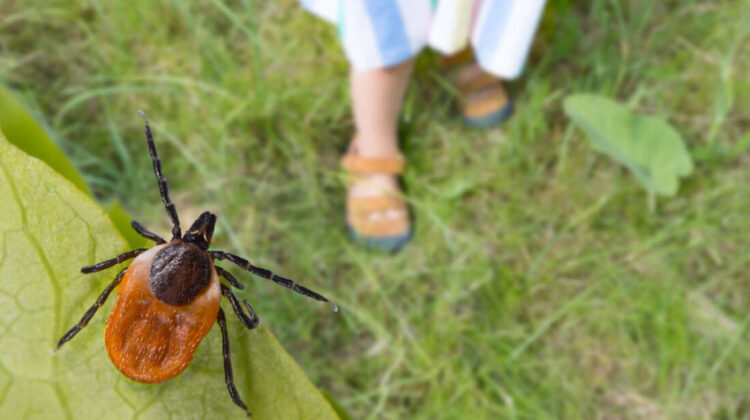
A shockingly large number of ticks infected with a neuroinvasive virus that may transfer to people and cause a potentially deadly condition have been discovered in a Pennsylvania park.
The Pennsylvania Department of Environmental Protection (DEP) collected 25 ticks from Lawrence Township Recreational Park near Clearfield and discovered that 23 of them (92%) tested positive for the Deer Tick Virus (DTV).
That number is significantly greater than usual. Last year, the statewide average DTV infection rate was 0.6 percent. The previous highest DTV infection rate in Pennsylvania was 11%, while the highest infection rate ever documented in the United States was over 25%.
“The infection rate of ticks sampled from the Lawrence Township Recreational Park is extremely high, Deer Tick Virus spreads quickly through the bite of an infected tick, and the health outcomes from the Deer Tick Virus are more severe than other tick-borne illnesses commonly seen in Pennsylvania,” DEP Secretary Patrick McDonnell said in a statement.
“While DEP continues to handle the problem, we strongly advise the public to exercise care and take precautionary steps to limit the danger of tick bites and subsequent infection,” McDonnell stated.
DTV is a Powassan virus that may be transferred from a tick to a human in as little as 15 minutes following a bite. The ticks (Ixodes scapularis) feed on the blood of deer in the northern states and the Great Lakes region, as their name implies. It’s the same tick species that’s the primary carrier of Lyme disease in North America.
Some infections are asymptomatic, which means they go unnoticed for a long time. However, symptoms such as fever, headache, vomiting, and weakness are common at first. It can also cause serious illness, such as infections of the brain or surrounding membranes (meningitis), which can cause disorientation, lack of coordination, trouble speaking, and seizures.
According to the CDC, one out of every ten persons who contract the severe condition will die, while the other half will experience repeated headaches, muscle loss, and memory issues.
Because there are no vaccinations or treatments to treat Powassan viruses, prevention is essential in combating the disease. The Pennsylvania Department of Environmental Protection is urging residents to exercise caution while spending time outside. Stick to the trail’s middle and stay away from woody and brushy sections with flora and grasses that may host ticks if you’re hiking in the great outdoors. Before going out, spray yourself with tick repellent and tuck your shirts into your pants and your pants into your socks. When you return home, take a shower and put your clothing in the high-heat dryer.
Stay careful and avoid getting bitten by deer ticks.
